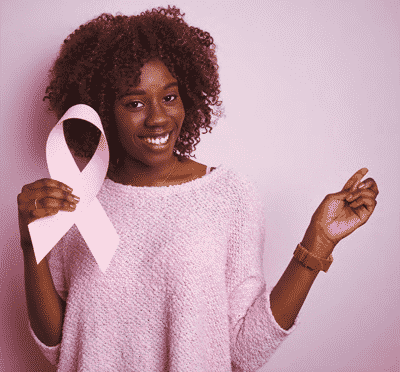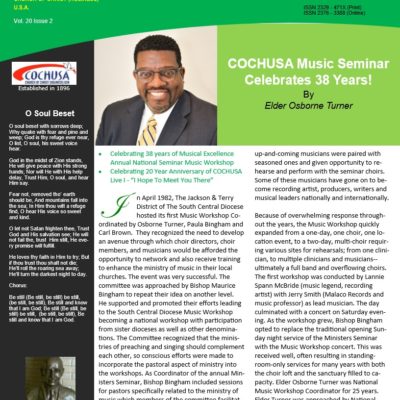Information provided the Susan G. Komen Breast Cancer Foundation
AFRICAN AMERICAN WOMEN IN THE U.S.
- Die from breast cancer nearly 40% more than Caucasian women
- Are often diagnosed at later stages when treatments are limited, costly and the prognosis is poor
- Are often diagnosed younger and with more aggressive breast cancers
WHAT IS BREAST CANCER?
What is cancer?
In a healthy body, natural systems control the creation, growth and death of cells. Cancer occurs when these systems don’t work right.
When cells don’t die at the normal rate, there’s more cell growth than cell death. This excess growth can form a tumor.
What is breast cancer?
Breast cancer occurs when cells in the breast divide and grow without their normal control.
Tumors in the breast tend to grow slowly. By the time a lump is large enough to feel, it may have been growing for as long as 10 years. Some tumors are aggressive and grow much faster.
Between 50-75 percent of breast cancers begin in the milk ducts, about 5-15 percent begin in the lobules and a few begin in other breast tissues.
WARNING SIGNS OF BREAST CANCER
Warning signs
The warning signs of breast cancer are not the same for all women.
The most common signs are:
- A change in the look or feel of the breast OR
- A change in the look or feel of the nipple OR
- Nipple discharge
If you have any of the warning signs described below, see a health care provider.
If you don’t have a provider, one of the best ways to find a good one is to get a referral from a trusted family member or friend.
If that’s not an option, call your health department, a clinic or a nearby hospital. If you have insurance, your insurance company may also have a list of providers in your area.
In most cases, these changes are not cancer.
One example is breast pain. Pain is more common with benign breast conditions than with breast cancer, but the only way to know for sure is to get it checked.
If the change turns out to be breast cancer, it’s best to find it at an early stage, when the chances of survival are highest.
Breast lumps or lumpiness
Many women find their breasts feel lumpy. Breast tissue naturally has a bumpy texture.
Some women have more lumpiness in their breasts than others. In most cases, this lumpiness is no cause to worry.
If the lumpiness can be felt throughout the breast and feels like your other breast, then it’s likely normal breast tissue.
Lumps that feel harder or different from the rest of the breast (or the other breast) or that feel like a change should be checked. This type of lump may be a sign of breast cancer or a benign breast condition (such as a cyst or fibroadenoma).
See a health care provider if you:
- Find a new lump (or any change) that feels different from the rest of your breast
- Find a new lump (or any change) that feels different from your other breast
- Feel something that’s different from what you felt before
If you’ve had a benign lump in the past, don’t assume a new lump will also be benign. The new lump may not be breast cancer, but it’s best to make sure.
Nipple discharge
Liquid leaking from your nipple (nipple discharge) can be troubling, but it’s rarely a sign of breast cancer.
Discharge can be your body’s natural reaction when the nipple is squeezed.
Signs of a more serious condition (such as breast cancer) include discharge that:
- Occurs without squeezing the nipple
- Occurs in only one breast
- Is bloody or clear (not milky)
Nipple discharge can also be caused by an infection or other condition that needs treatment.
If you have any nipple discharge, see a health care provider.
QUESTIONS FOR YOUR PROVIDER – BREAST CANCER SCREENING
Questions for your health care provider
Am I at a higher than average risk of breast cancer?
When should I begin mammography screening?
How often should I get a mammogram?
What should I do to prepare for a mammogram?
Is my mammogram scheduled at an FDA-certified mammography center? (To check on your own, visit the FDA website.)
Does the radiologist specialize in mammography?
Find out more about Susan G. Komen’s African American Health Initiative





